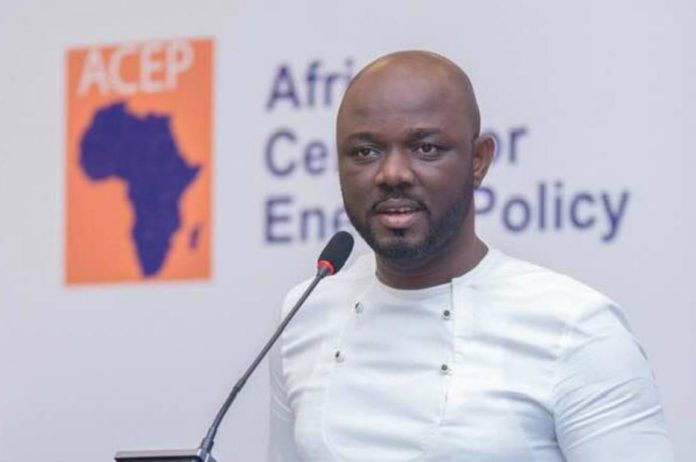The Africa Center for Energy Policy (ACEP) has raised serious concerns about how the Electricity Company of Ghana (ECG) has handled its exchange rate transactions for power distribution.
According to a Policy Lead on Petroleum and Conventional Energy at ACEP, Kodzo Yaotse, the ECG has been reporting exchange rates to the Cash Waterfall Committee that are significantly higher than the inter-bank rates.
This discrepancy has led to substantial financial losses for the company.
“This exchange rate manipulation created a net exchange loss of about GH₵6.5 billion in 2022 (from GH₵609 million in 2021) and about GH₵ 7 billion in 2023”, Mr Yaotse said.
He cautioned that the figures highlight a troubling trend that has significant implications for the financial health of ECG and the broader energy sector in Ghana.
He disclosed that ACEP used the Right to Information (RTI) process, to request for the historical exchange rates used by ECG for its transactions.
Mr. Yaotse said since May 2024, the ECG has been unable to provide the information.
“…the requested information is quite extensive and will require some time to compile. All efforts are being made to put together the information requested for submission. We acknowledge your forbearance thus far and implore your continued support as we work towards meeting the request.”
Mr Yaotse emphasized that this “undermines the ability of ECG to pay the value chain and redirect public resources away from legitimate expenditure programmes.”
The result is a severe financial strain on Tier B companies, including VRA, GRIDCo, and Bui, which receive only 20% to 45% of their invoiced amounts.
The PURC’s letter called for comprehensive stakeholder input to address the challenges and improve the mechanism.
Key areas for feedback include the adequacy of the current assumptions underpinning the CWM, implementation challenges, particularly those related to exchange rate discrepancies and revenue collections, and recommendations for enhancing the mechanism to better meet sector demands.
The Commission in a letter addressed to the Presidency, Energy and Finance ministers, and other key stakeholders, highlights the potential collapse of the energy sector due to financial instability if immediate actions are not taken.
The PURC’s concerns focus on key energy sector players such as the Ghana Grid Company (GRIDCo), Volta River Authority (VRA), Bui Power Authority, and independent power producers.
These entities are struggling financially, primarily because the current CWM framework, revised in August 2023, is not functioning as intended.
The mechanism, which requires the Electricity Company of Ghana (ECG) to collect and distribute a minimum of GHȼ1 billion monthly, has fallen short, with ECG failing to comply with the guidelines.
ALSO READ:

